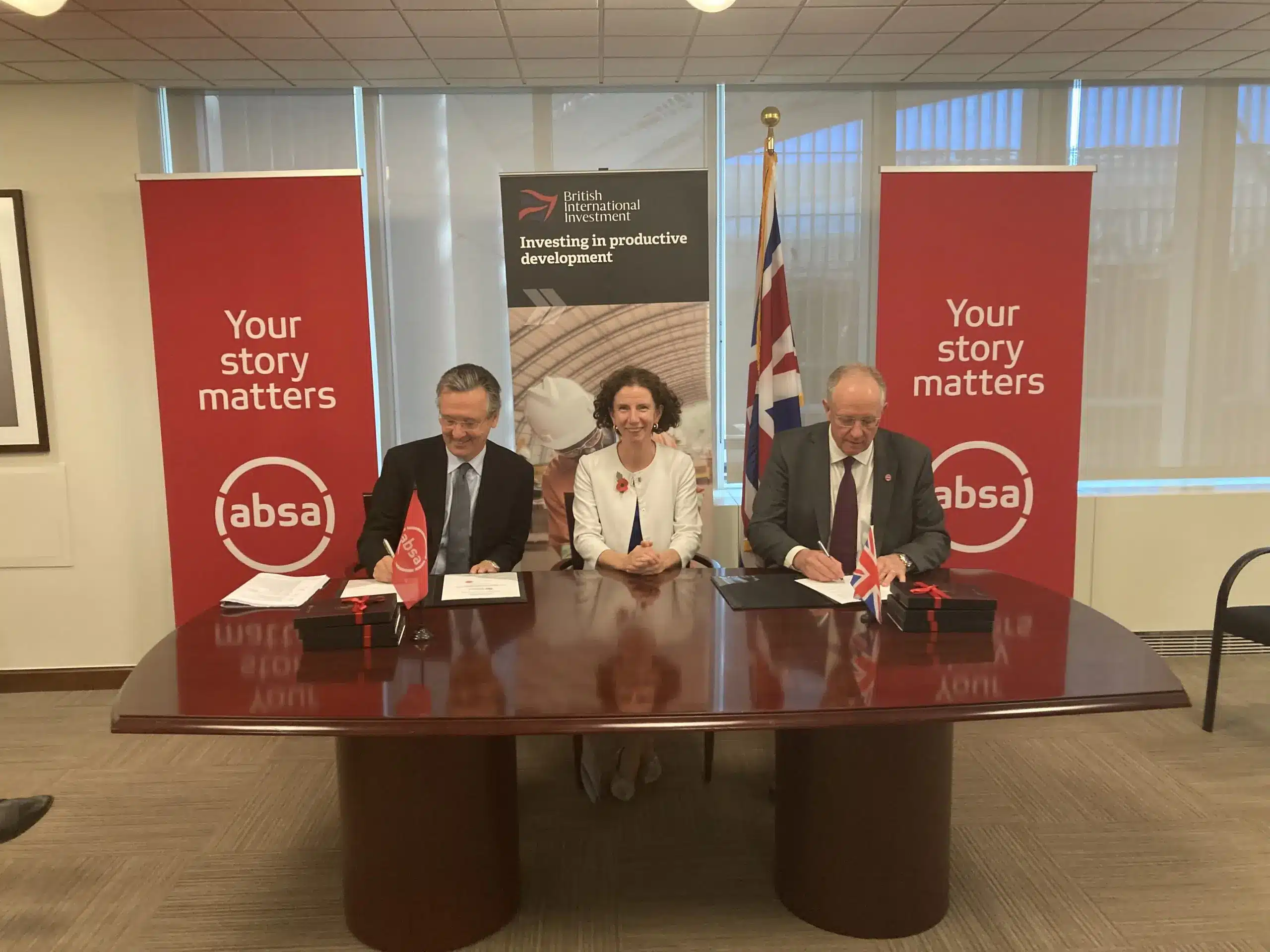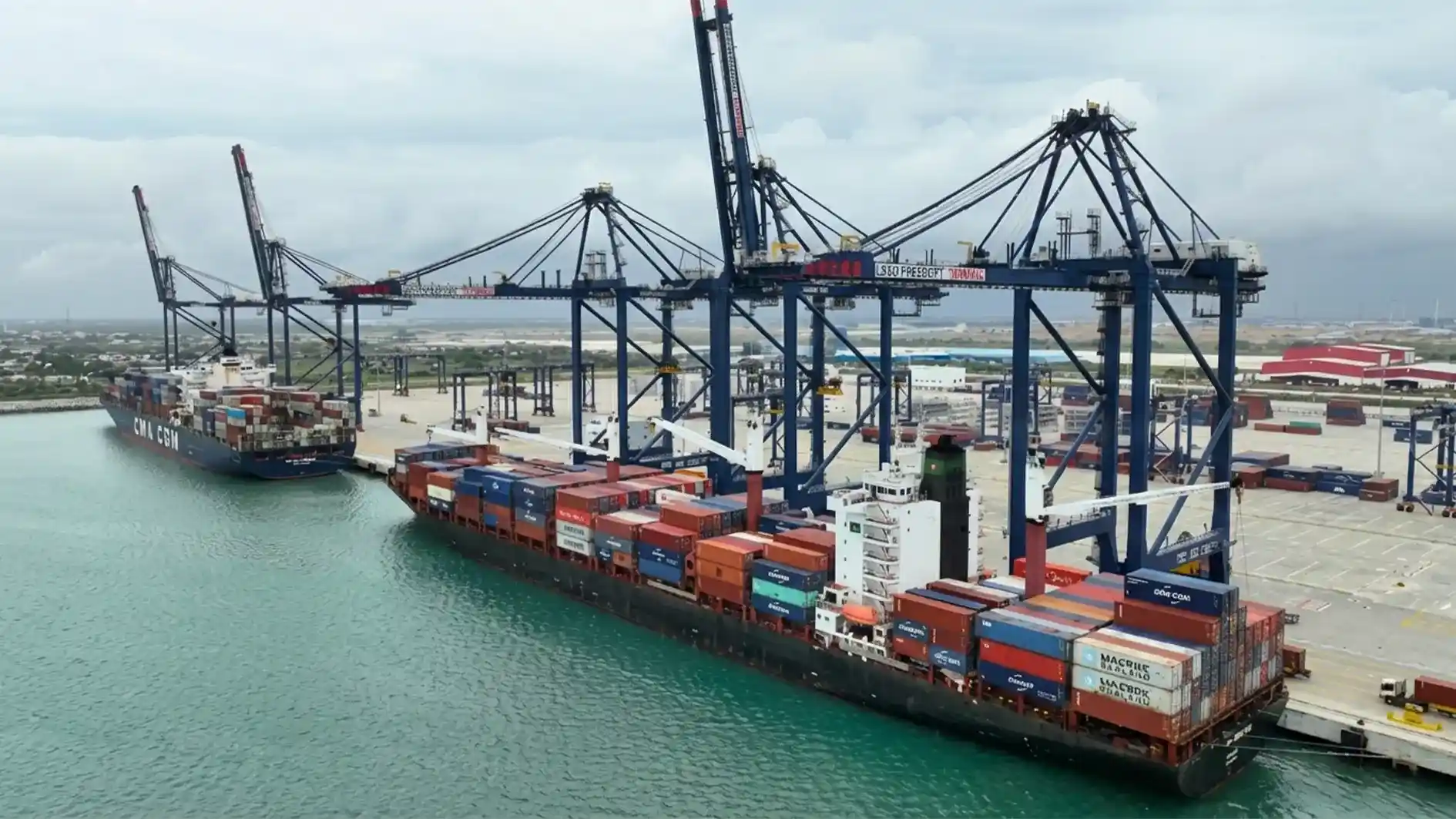In a strategic move to address Africa’s persistent trade financing shortfall, British International Investment (BII), the UK’s development finance institution, announced a new $150 million trade finance facility in collaboration with Absa Group, one of Africa’s largest financial institutions. This facility aims to bridge the continent’s trade finance gap, estimated at $100-120 billion, by injecting essential liquidity into sectors critical to Africa’s economic growth, including agriculture, healthcare, and fast-moving consumer goods (FMCG). Targeted support will also be provided to small and medium-sized enterprises (SMEs), with a particular focus on women- and youth-led businesses.
A Longstanding Partnership Making a Difference
The BII-Absa collaboration is far from new. Since 2019, their joint efforts have supported over $1 billion in trade volumes across Africa, providing vital trade liquidity in nations such as Ghana, Nigeria, Kenya, Uganda, Tanzania, and Mozambique. The partnership proved invaluable during the COVID-19 pandemic, a period when trade finance across the continent was severely strained. By extending critical financial support, BII and Absa helped African businesses sustain operations, protecting supply chains and ensuring that essential goods, including food and medical supplies, continued to reach communities in need.
Bridging Africa’s Trade Finance Gap
With Africa’s trade finance gap estimated to range between $100 billion and $120 billion annually, this facility addresses one of the continent’s most significant economic challenges. According to the African Development Bank (AfDB), trade finance shortages hinder African SMEs from accessing growth opportunities, disrupting supply chains and limiting their ability to compete both locally and internationally. Through this $150 million facility, BII and Absa aim to make financing more accessible to African SMEs, which often face high-interest rates or lack the collateral required by conventional lenders.
UK Development Minister Anneliese Dodds emphasized the UK’s commitment to fostering sustainable growth across Africa. “I am pleased to see BII support Absa through this essential facility, which builds on a robust partnership to help close Africa’s trade financing gap. Today’s signing highlights BII and Absa’s commitment to sustainable and inclusive economic growth, focusing on SMEs, women, and youth.”
Empowering SMEs and Underserved Groups
The trade finance facility will not only enhance liquidity but also ensure that the funding reaches the most impactful sectors. BII and Absa plan to channel financing into high-growth areas like agriculture, healthcare, and FMCG — sectors that play a vital role in creating jobs, increasing productivity, and addressing key regional challenges such as food security and healthcare accessibility. Recognizing the structural barriers that often prevent women and youth from obtaining finance, the facility includes dedicated provisions for these groups, helping to promote inclusive economic growth across the continent.
“By targeting SMEs and groups such as women and youth, we’re fostering an inclusive trade ecosystem,” noted Admir Imami, Director and Head of Trade & Supply Chain Finance at BII. “This facility builds on BII’s long-standing support in Africa, leveraging Absa’s expertise to make trade finance more accessible and improve the vital flow of essential goods, including food.”
Absa Group’s Role in Facilitating Cross-Border Trade
Absa Group brings to the table not only its financial resources but also its extensive expertise in cross-border trade and finance. With a presence across 12 African countries and a broad international network, Absa is well-positioned to drive impact through this facility. Its role will be pivotal in providing accessible finance options and supporting Africa’s SMEs in scaling operations and competing globally.
Absa Group’s Interim CEO, Charles Russon, stated, “Our extensive presence across the continent, combined with our global reach, enables us to facilitate the flow of capital and trade finance that African businesses need to scale and compete internationally. By leveraging our cross-border expertise and strategic partnerships, we’re creating new opportunities and contributing to the broader development of Africa’s economic ecosystem.”
The Impact of Trade Finance on Economic Growth
Trade finance has proven to be a critical enabler of economic growth in Africa. A report by the International Chamber of Commerce (ICC) highlights that access to trade finance can increase a small business’s likelihood of survival by up to 50%. This is particularly significant for Africa, where SMEs contribute approximately 80% of jobs and play a fundamental role in reducing poverty. However, despite this, only about one-third of Africa’s SMEs have access to formal trade finance, a situation the BII-Absa facility is poised to address.
Supporting Sustainable Development Goals
The BII-Absa facility aligns with several of the United Nations Sustainable Development Goals (SDGs), particularly those focusing on poverty reduction, gender equality, and economic growth. By targeting underrepresented groups and supporting high-impact sectors, the facility contributes directly to SDG 5 (Gender Equality), SDG 8 (Decent Work and Economic Growth), and SDG 9 (Industry, Innovation, and Infrastructure). It also underscores the UK’s dedication to sustainable development in Africa, building on its broader goals of improving infrastructure, financial inclusion, and social outcomes.
The Growing Importance of Impact Investing in Africa
This trade finance facility exemplifies the growing trend of impact investing, where investments are made with the intention of generating both financial returns and social impact. For BII, impact investment has become central to its strategy. Africa’s vast growth potential has drawn increasing interest from global impact investors, who see the continent as not only a source of economic returns but also as an opportunity to drive progress in critical areas such as healthcare, education, and financial inclusion. As of 2023, Africa is the second-most popular destination for impact investments globally, with impact funds increasingly focusing on inclusive financial products.
According to a recent study, impact investing in Africa has tripled in the last decade, and the trend is expected to continue as more development finance institutions, private equity firms, and sovereign wealth funds recognize the continent’s growth prospects. BII’s ongoing partnership with Absa highlights the role that development finance can play in de-risking investments, encouraging other investors to enter African markets, and creating long-term value for communities.
The Global Perspective: Leveraging Partnerships
This latest announcement comes on the sidelines of the World Bank Annual Meetings, where the challenges and opportunities of trade finance in emerging markets have been a prominent topic. With participation from leaders such as Nick O’Donohoe, BII’s CEO, and Charles Russon, Absa’s Interim CEO, the initiative underscores the importance of international collaboration to meet Africa’s financing needs. Global partnerships, such as that between BII and Absa, enable pooled resources, shared expertise, and cross-border financing solutions tailored to Africa’s unique challenges.
Building Resilience Against Future Challenges
As Africa’s economies continue to face challenges from global economic shifts, regional conflicts, and climate change, trade finance facilities like the one launched by BII and Absa are critical in building resilience. By enhancing the flow of capital to critical sectors, BII and Absa aim to equip African economies with the tools they need to adapt, recover, and grow. With the backing of the UK government, BII is confident that the facility will help address Africa’s urgent trade financing needs, enabling African businesses to access essential goods and services.
Conclusion
The $150 million trade finance facility from BII and Absa marks a significant step toward bridging Africa’s trade finance gap. With a focus on sustainable, inclusive financing, this facility will empower SMEs, enhance economic resilience, and foster the conditions needed for long-term growth across the continent. As impact investing continues to grow, partnerships like this one set a precedent for how development finance can transform emerging markets and unlock new economic opportunities.
Ready to take your career to the next level? Join our dynamic courses: ACCA, HESI A2, and ATI TEAS 7! 🌟 Dive into a world of opportunities and empower yourself for success. Explore more at Serrari Ed and start your exciting journey today! ✨
Photo source: Google
By: Montel Kamau
Serrari Financial Analyst
29th October, 2024
Article, Financial and News Disclaimer
The Value of a Financial Advisor
While this article offers valuable insights, it is essential to recognize that personal finance can be highly complex and unique to each individual. A financial advisor provides professional expertise and personalized guidance to help you make well-informed decisions tailored to your specific circumstances and goals.
Beyond offering knowledge, a financial advisor serves as a trusted partner to help you stay disciplined, avoid common pitfalls, and remain focused on your long-term objectives. Their perspective and experience can complement your own efforts, enhancing your financial well-being and ensuring a more confident approach to managing your finances.
Disclaimer: This article is for informational purposes only and does not constitute financial advice. Readers are encouraged to consult a licensed financial advisor to obtain guidance specific to their financial situation.
Article and News Disclaimer
The information provided on www.serrarigroup.com is for general informational purposes only. While we strive to keep the information up to date and accurate, we make no representations or warranties of any kind, express or implied, about the completeness, accuracy, reliability, suitability, or availability with respect to the website or the information, products, services, or related graphics contained on the website for any purpose. Any reliance you place on such information is therefore strictly at your own risk.
www.serrarigroup.com is not responsible for any errors or omissions, or for the results obtained from the use of this information. All information on the website is provided on an as-is basis, with no guarantee of completeness, accuracy, timeliness, or of the results obtained from the use of this information, and without warranty of any kind, express or implied, including but not limited to warranties of performance, merchantability, and fitness for a particular purpose.
In no event will www.serrarigroup.com be liable to you or anyone else for any decision made or action taken in reliance on the information provided on the website or for any consequential, special, or similar damages, even if advised of the possibility of such damages.
The articles, news, and information presented on www.serrarigroup.com reflect the opinions of the respective authors and contributors and do not necessarily represent the views of the website or its management. Any views or opinions expressed are solely those of the individual authors and do not represent the website's views or opinions as a whole.
The content on www.serrarigroup.com may include links to external websites, which are provided for convenience and informational purposes only. We have no control over the nature, content, and availability of those sites. The inclusion of any links does not necessarily imply a recommendation or endorsement of the views expressed within them.
Every effort is made to keep the website up and running smoothly. However, www.serrarigroup.com takes no responsibility for, and will not be liable for, the website being temporarily unavailable due to technical issues beyond our control.
Please note that laws, regulations, and information can change rapidly, and we advise you to conduct further research and seek professional advice when necessary.
By using www.serrarigroup.com, you agree to this disclaimer and its terms. If you do not agree with this disclaimer, please do not use the website.
www.serrarigroup.com, reserves the right to update, modify, or remove any part of this disclaimer without prior notice. It is your responsibility to review this disclaimer periodically for changes.
Serrari Group 2025
















